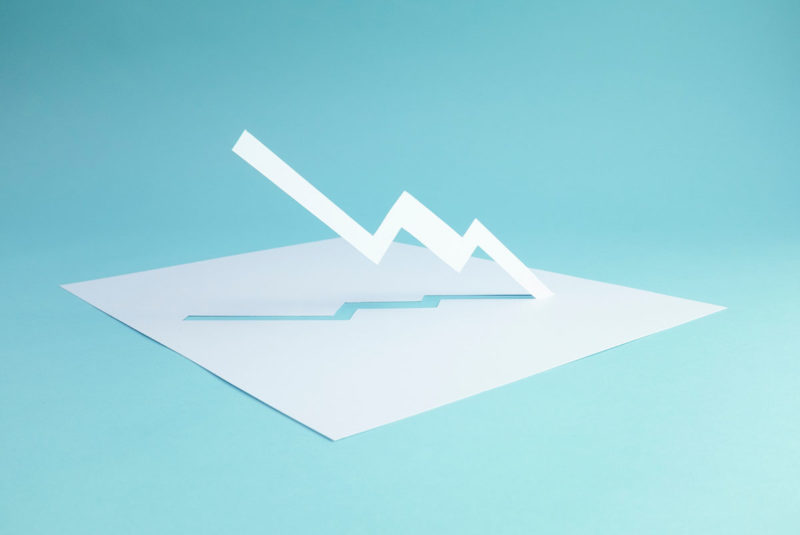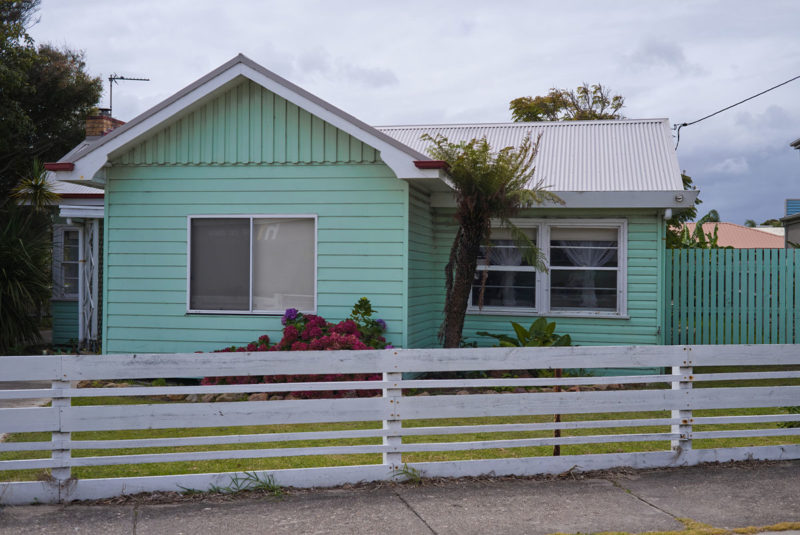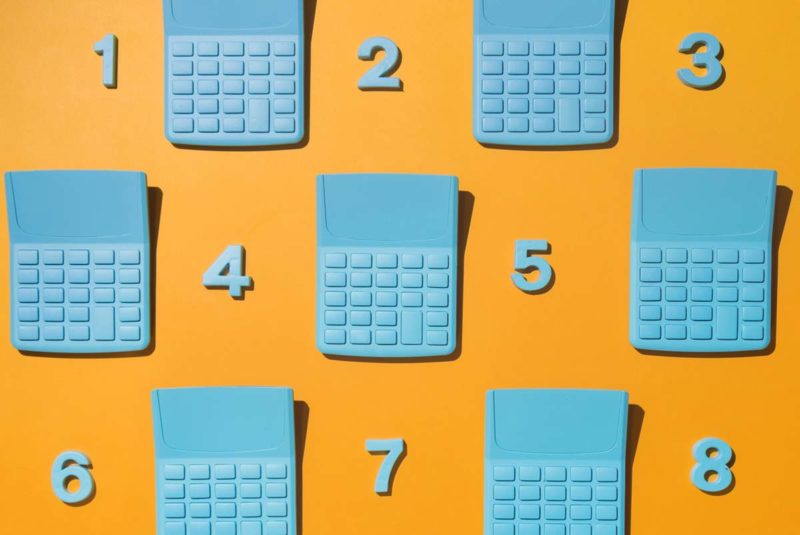Ready To Buy a Home?
Get Approved to Buy a Home
Rocket Mortgage® lets you get to house hunting sooner.
Home equity in a primary residence is the largest source of wealth for families across the nation, according to the National Association of Home Builders.[2] As a result, many people see homeownership as a sure path to building their nest egg – and in many cases, this can be true.
But the heart is not so smart, and temptation lurks in various corners of the home buying process, including the temptation to buy a home your heart is set on even if it’s beyond your means.
If you’re approved for a big mortgage, it’s wise to resist the temptation to max out on the loan amount. Qualifying for a loan and affording a loan are two very, very different things. And knowing the difference may save you financial worries – and money.
You may quickly find yourself facing an array of financial challenges if you buy a home you can’t afford in the long run. The U.S. Census Bureau estimates that roughly 1 in 6 American homeowners are spending more than 50% of their monthly income on housing costs.[1]
So What Does It Mean To Be ‘House Poor’?
Explore Your Mortgage Options
What are you looking to do?
A homeowner is considered “house poor” when they spend a significant portion of their income on homeownership expenses, including their mortgage payment, property taxes, homeowners insurance, utilities and home maintenance.
If you’re wondering whether you fall into this category, ask yourself a few questions:
- Do I have enough cash to cover an unexpected expense?
- Can I keep up with all of my bills each month?
- Can I keep making mortgage payments without falling into financial hardship?
If you answered “no” to any or all of these questions, the truth is that you’re not alone. And, fortunately, there are some things you can do to improve your financial situation.
What Can Cause Me To Become ‘House Poor’?
The most common reason homeowners become “house poor” is because they grossly underestimated the real cost of owning a home. Who among us hasn’t found the perfect home online, locked eyes with the estimated monthly mortgage payment and thought: “Hmm … my rent costs more than this. It might be the time to switch from home occupant to homeowner!”
Property taxes
With a fixed-rate mortgage, your monthly mortgage payments are fixed (aka stay the same) over the life of the loan. But the “fixed” part of a fixed-rate mortgage only applies to the principal and interest payments. Other components in a mortgage, like property taxes, can significantly change over time.
In most cases, your property taxes are included in your monthly mortgage payments. So, whenever your property value increases, you can expect your monthly mortgage payment to increase, too.
Let’s say your home’s value jumps by $100,000, you’ll be “house richer” because you built up more equity in your home, but that won’t necessarily translate into having more cash on hand. Yes, your property value went up, but your property tax bill can go up, too.
HOA Fees
Currently, about 74 million households are governed by a homeowners association (HOA) or a condo board.[3] An HOA usually charges monthly fees that are set by a board. The fees are used to cover expenses like maintenance, insurance, amenities and more. The fees can cost anywhere from a few hundred dollars a year to more than $1,000 every month.
If an HOA decides special repairs or improvements are needed or that it needs money to cover other financial obligations, HOA fees will typically increase, which could add another layer of debt for a homeowner.
Maintenance and emergency costs
When you buy a home, there are many standard maintenance costs – such as exterior and interior home maintenance, yard care, appliances and HVAC maintenance – that will continue to increase as different parts of your home age and break down over time.
As a general rule of thumb, you should expect to pay about $1 in maintenance for every square foot of space in your home. But your cost per square foot could be even higher if your home, appliances or other home features are older.
And what about the water heater that bursts or the flickering lights? Things can and will go wrong in a home. And many maintenance emergencies – especially emergencies related to plumbing, electricity and other critical systems – will need to be addressed and paid for ASAP. A busted water heater, for example, could add up to a surprise $1,000 bill.
Ideally, you should try to save as much as 1% of your home’s value for emergencies.
Now, for many homeowners, 1% of their home’s value is a lot of money to park into a savings account, but if you don’t have it (or close to it), you may find yourself struggling to cover the cost of any repairs and your next mortgage payment.
Financing repairs or charging them to a credit card will put off having to pay any expenses immediately, but it might come at the cost of adding another high-interest debt to your monthly payments.
Down payment and closing costs
Today, with the right credit score, you can find a mortgage that only requires a 3% down payment. That’s far lower than the recommended 20% that was the industry standard for years.
While 3% is lower – much lower – than 20%, 3% of a home’s value is still a lot of money.
Let’s say you have $20,000 saved, and you want to buy a $400,000 home.
If you qualify for a mortgage with a 3% down payment, you’ll need $12,000 for the down payment, leaving you with $8,000.
But there’s more. You may have to account for closing costs, which can easily cost between $4,000 – $6,000. Some of these costs need to be paid upfront, while others can be added to your mortgage. But keep in mind that every dollar added to your loan will increase your loan’s balance – and, by default, your monthly mortgage payment.
At best, you’ll probably be left with $2,000 in the example above – and you haven’t paid for a home inspection yet, paid any moving expenses, paid a utility bill or even made your first mortgage payment. If $2,000 is all you have left to put toward the rest of your home buying expenses, your odds of becoming “house poor” only become that much higher.
FYI: If you can make a larger down payment, your monthly mortgage payments will likely be lower, but you’ll need to have that money upfront, and if it’s still less than 20%, you may have to deal with mortgage insurance.
Major life changes
Homeowners can become “house poor” after major changes in their lives. You may unexpectedly lose your job or can’t work anymore. You or a family member could get sick. Unexpected (and even expected) life changes could make it much harder to keep up with your mortgage payments.
And while it’s impossible to predict the future, you can work on your budget today to prepare for any surprises that might force you to dip into your savings and readjust your budget priorities.
If you’re ever worried about not making a mortgage payment, talk to your lender as soon as you can. They can go over your debt relief options. There are many, including a few you may not have considered or been aware of.
What Percentage of Income Should Go to Housing Costs?
Have you ever heard of the 28/36 rule? You can apply the rule to help you make budgeting decisions and figure out how much home you can reasonably afford.
The 28/36 rule recommends that you spend no more than 28% of your gross monthly income to cover your rent or mortgage and no more than 36% (though many find it’s closer to 43% these days) to cover your fixed, monthly debts, including house expenses, student loans, auto loans, credit cards and personal loans.
What Are the Major Risks of Being ‘House Poor’?
Being “house poor” can make it harder to keep up with your monthly mortgage payments. And if you can’t make your payments, your financial misfortunes could escalate from late fees to your delinquent account getting reported to credit bureaus to foreclosure.
Fortunately, this process doesn’t happen overnight, and there are debt relief options that can help keep the situation manageable.
And even if you are keeping up with your payments, spending all your money on your home means you can’t spend it anywhere else – making it much harder to achieve long-term financial goals, like building an emergency fund, saving for retirement or even taking a vacation.
What Should You Do if You’re ‘House Poor’?
Being “house poor” isn’t fun. Whether you’re currently “house poor” or are worried you might be at risk of becoming “house poor,” there are steps you can take to help avoid or get out of your situation.
Increase your income
There is no denying that increasing your income is the best way to improve your financial well-being. Of course, for many of us, increasing our income is easier said than done. But, if you have extra time on your hands, consider getting a second job, turning a hobby into a side hustle, selling stuff you don’t need or turning a portion of your home into a rental or Airbnb.
Refinance
Refinancing can help you address financial challenges, such as refinancing to pay off debt. But refinancing can also be used to change the terms of your mortgage. You may be able to refinance to a lower interest rate on your mortgage, and that may help decrease your monthly mortgage payment. When done at the right time, refinancing can make owning a home a bit more manageable.
Adjust your budget
Creating a budget and revisiting your finances may help you find ways to immediately improve your financial health. There are likely lots of expenses you’re making that may seem small but add up over time.
For example, if you spend $60 eating out every week, that might seem like a harmless splurge. But add up the weekly $60 over a year and your small luxury becomes a $3,120 fortune. If your takeout habit was a 30-year mortgage, it would cost you north of $90,000. We’re not saying you should cut out everything that makes life worth living. But if an expense is nonessential – and you can live without it – cut it out or do less of it. Anything to make the cost of homeownership more manageable for you.
Dip into savings
If you’ve been holding off on dipping into your savings, now might be the time to dive in. Using your savings for surprise expenses (like a new fridge) might help you maintain your quality of life and avoid a new debt burden.
Pro tip: Make sure you have a plan in place to replenish your savings account after you dip into it.
Consider selling
If you’ve exhausted all your options and nothing worked, selling your home might be the best choice. Selling and moving into a smaller home or renting again may not be what you saw in your future, but isn’t that better than drowning in debt?
How Do I Avoid Becoming ‘House Poor’ in the First Place?
There are a few things you can do to avoid getting in over your head over a house:
- Avoid buying at the higher end of your budget
- Put money into your savings every month
- Create a strict budget — and stick to it
- Work with a financial advisor
- Don’t assume that qualifying for a house means you can afford it
Your Home Is Your Sanctuary – Avoid Turning It Into a Burden
There are millions of American households that are currently described as “house poor.” But it doesn’t need to be this way.
Honesty will be the best policy here. From your mortgage to your ability to handle unexpected expenses, be honest about what you can comfortably afford. Remember, you didn’t buy a home to rob you of wealth, you bought it to, hopefully, unlock the door to wealth.
Need Mortgage Help?
New home, second home, refinancing, we’ve seen it all. Whatever your goals, expert help is just a click away.
The Short Version
- “House poor” describes homeowners who are overwhelmed by their housing expenses
- Roughly 1 in 6 American homeowners are spending more than 50% of their monthly income on housing costs[1]
- With the right financial planning, you can avoid becoming “house poor”
U.S. Census Bureau. “American Housing Survey (AHS) Table Creator.” Retrieved May 2022 from https://www.census.gov/programs-surveys/ahs/data/interactive/ahstablecreator.html?s_areas=00000&s_year=2019&s_tablename=TABLE10&s_bygroup1=20&s_bygroup2=1&s_filtergroup1=1&s_filtergroup2=1
National Association of Home Builders. “Homeownership Remains Primary Driver of Household Wealth.” Retrieved April 2022 from https://www.nahb.org/blog/2021/02/homeownership-remains-primary-driver-of-household-wealth
National Association of REALTORS®. “Record Number of Homeowners Live in HOA Communities.” Retrieved April 2022 from https://magazine.realtor/daily-news/2020/09/23/record-number-of-homeowners-live-in-hoa-communities




